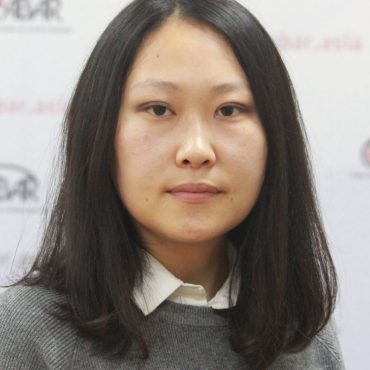Program
-
Module 1
The Module “Analytical Material Production” This is an introductory module that explains the features of analytical journalism, its main aspects and principles. Here, you will study the style of a journalist-analyst, how to collect and analyze information and how to present it comprehensively. The author also shares her tips and secrets for the successful preparation of the analytical material. Author: Maria Zozulya, professional journalist and editor of a number of leading news agencies in Kyrgyzstan, the author of a number of impactful investigations and analytical articles.
-
Module 2
The Module “Reporting” Reporting is one of the varieties of analytical journalism. It provides opportunities for creative experiments. A report should be necessarily based on materials that are collected “from the field”, that is, from personal observations, conversations and empirical experience of the journalist. The author of this module explains how to gather such materials, what techniques and methods you need to use, and what rules you need to follow in order to prepare a good report. Author: Natalia Lee, IWPR and CABAR.asia editor in Kyrgyzstan, author of dozens of TV and online media reports.
-
Module 3
The Module “Interview” Interview is a key element in journalism that helps to collect information. The quality and value of information for your audience depend on the ability to interview correctly. The respondents are often not interested in giving clear answers to the reporters’ questions and in every possible way avoid them or provide irrelevant information. In this module, you will learn about the obstacles for interview and how to avoid them. Author: Timur Toktonaliev, IWPR and CABAR.asia editor in Kyrgyzstan, author of many materials in various genres in local and international media.
-
Module 4
The Module “International Standards in Journalism” Journalism, like other professions and occupations, develops by its standards and principles. They make journalism respected among the audience, and its products demanded in all segments of the population. Good analytical material cannot be produced without all these standards. In this module, you will learn about each of them in detail, about the principles and how to follow them in your work. Author: Lola Olimova, IWPR and CABAR.asia editor in Tajikistan, certified trainer in the “International Standards in Journalism”
-
Module 5
The Module “Ethical Standards in Journalism” Journalism is always about people. Where there is a person, there should be ethics. Ethical standards in journalism are one of the key components in international journalism standards. However, the importance and scope of this direction always forces it to be considered separately and in detail. In this module, you will learn about dilemmas that you may encounter in your work and how you can solve them without violating the ethical principles of the profession. Author: Marat Mamadshoev, IWPR and CABAR.asia editor in Tajikistan, specializes in the studying and teaching of ethical standards in journalism
-
Module 6
The Module “How to write comprehensively for online media” It is not enough to collect a rich harvest of information and details for your analytical article. It is equally important to present the material comprehensively. Otherwise, no matter how exclusive and interesting the information is, the audience will not appreciate the work done and will leave it unattended. To prevent this, listen to this module and follow the provided recommendations. Author: Eldiyar Arykbaev, journalist and editor of the popular online media Kloop.kg, experienced trainer and mentor in journalism
-
Module 7
The Module “Data Journalism” The analysis of various data is an integral part of analytical journalism. However, familiarization and analysis of the data requires certain knowledge and preparation. Otherwise, it will be difficult for a journalist to find the details and nuances that need analysis and disclosure to the public. In this module, an experienced data journalist and analyst explains how to avoid drowning in data and find interesting storytelling material. Author: Anastasia Valeeva, journalist specializing in data analysis. Author and editor of a number of impactful data materials, trainer and mentor of data journalism for journalists.
Instructors

Maria Zozulya

Natalia Lee

Timur Toktonaliev

Lola Olimova

Marat Mamadshoev

Eldiyar Arykbaev

Anastasia Valeeva




